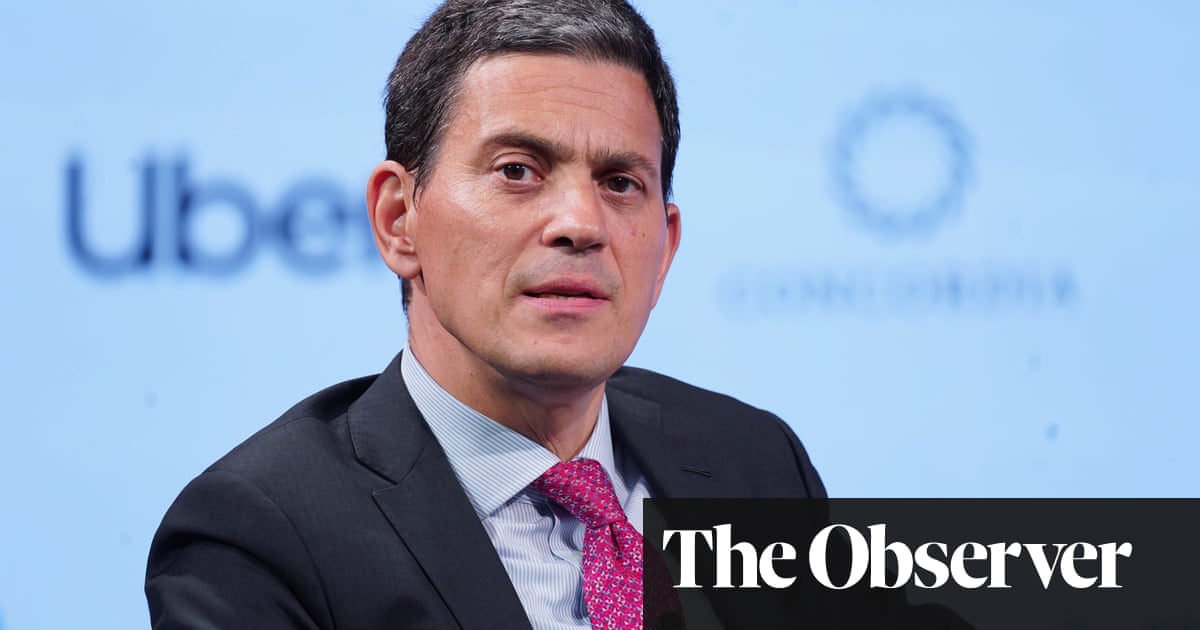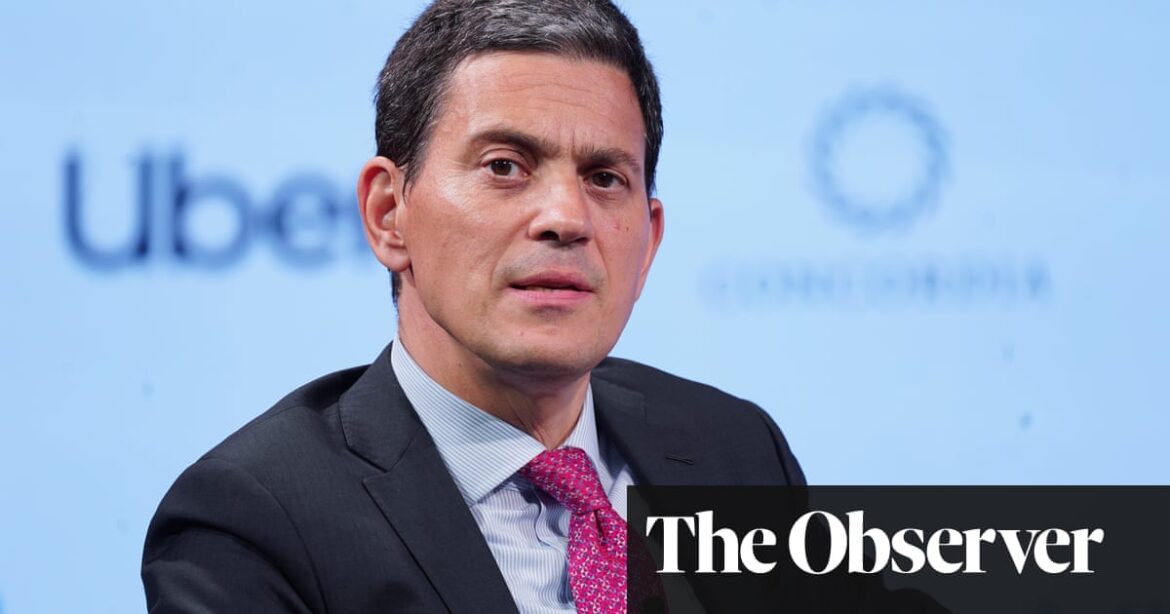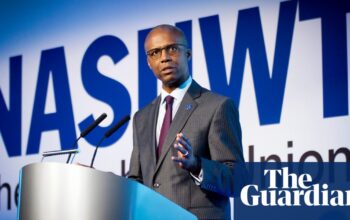
The UK has lost influence since Brexit to become just one of many “middle powers” in the world, former foreign secretary David Miliband has said.
Writing for the Observer, Miliband, now president and chief executive of the International Rescue Committee, said that in order to reverse the decline, the UK needed to enter new “structures and commitments” with the EU on foreign policy.
“Our relations in Nato are strong, but with the EU they are almost nonexistent. And this is all the more glaring since the war in Ukraine has brought the EU and Nato closer together,” he said.
Miliband suggested that the UK’s downward trend could accelerate if Donald Trump was re-elected later this year. But he believes that, even if Joe Biden wins a second term, “the warning signs about American willingness, patience and ability to provide active and continuing strategic global leadership are still there”.
He added: “In a world where the EU is shipping weapons to Ukraine, hosting 6 million Ukrainian refugees, is a major development actor, sits in the G20, and is a regulatory superpower in trade, climate and digital areas, we need our mindset to change.
“A UK policy on Russia separate from the EU will be weaker and less effective. The same is true in respect of China. So the decision of the UK in 2019 to refuse a political and foreign policy relationship with the EU needs to be reversed. Structures and commitments need to be put in place to drive cooperation and coordination in the many areas of shared foreign policy, defence, security and development policy interest.”
Miliband’s comments go far further than any policy outlined so far by Labour towards closer working with the EU, if the party wins power at the next general election.
Miliband, who was foreign secretary from 2007 to 2010 under Tony Blair and Gordon Brown, says that “one of the delusions of Brexit” was that the UK’s destiny would depend only on its own decisions, rather than the ability to engage and bargain with other countries.
He said: “The danger for British policymakers was exemplified by the Johnson government: wishful thinking about our power and position in a world dominated by growing global risks and muscular, transactional, adroit – sometimes predatory – nations and non-state actors, all growing in influence by the weakening of the multilateral system.”
Britain, he said, still had global reach and power, and retained hard and soft power. It is also one of the world’s richer countries and is privileged to have a seat on the UN security council. “But we have an imperative to understand the realities of our power as it is today, and not as it used to be.
“We do not have the finance of Saudi Arabia, the EU anchor of France, the regional activism and risk appetite of Turkey or the demographic strength of India or Indonesia. We are one among a number of ‘middle powers’ in the global system. Our wealth, military assets and reputation have all declined relative to others in the last decade.
“Our position, on critical interests from the economy to the climate crisis, national security and international development, will get worse unless we get our act together. The reason is simple: the world is trending towards an unhealthy disequilibrium, and Britain is on the wrong side of some of the key trends.”
Source: theguardian.com



